BestReviews is reader-supported and may earn an affiliate commission. Details
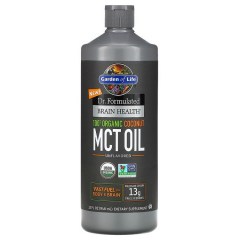
Versatile and organic MCT oil that provides healthy support for both active users and dieters alike.
Fast-acting, easily absorbed oil. Provides a boost for athletes and supplements a paleo, keto, and vegan diet. Improves brain function and health. Small serving size; bottle should last a couple months.
Pricey investment. Best mixed in beverages and avoided with solid food.
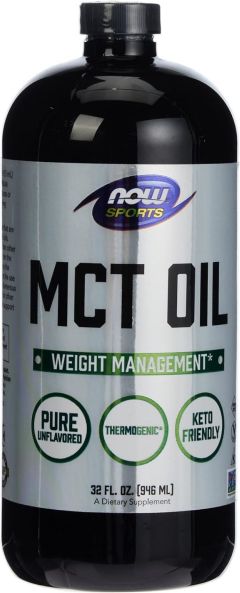
For under $20, this MCT oil is a bargain for anyone looking for an uptick in energy and focus or to jumpstart weight loss.
Regular consumption of this oil helps to regulate digestive system. Can be easily mixed with cold liquids without leaving an oily residue. 32-ounce bottle contains oil well without any spills or leaks.
Doesn’t feature an easy-pour cap.
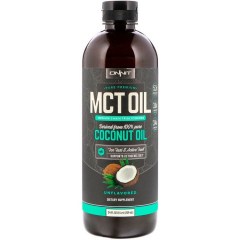
For anyone looking to enhance their keto diet, or ones aiming to increase their energy and mental clarity, this tasteless and odorless oil is a must.
Nearly tasteless and odorless. Doesn’t leave oily residue. Mixes well with coffee and other foods. Provides energy but doesn’t induce jittery feeling. Increases mental sharpness and curbs appetite. Bottle is 24 ounces.
Should be introduced gradually to mitigate risk of stomach irritation.
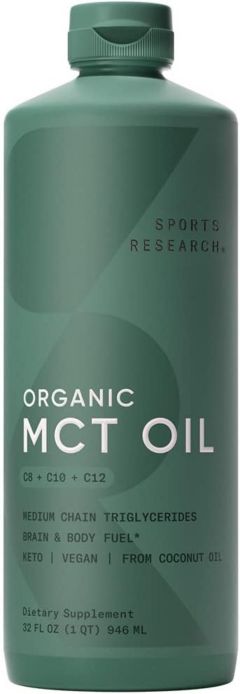
The consistency of this MCT oil makes it easy to blend it with beverages and drinks. It goes virtually undetected given it’s tasteless and odorless.
This MCT oil is certified non-GMO. It’s tasteless and odorless, making it easy to mix with coffee or water. Helps those on keto diet to achieve ketosis and helps regulate blood sugar levels. Can also be used on skin. Bottle is 32 ounces.
Squirt bottle cap makes it hard to control how much oil comes out at once.
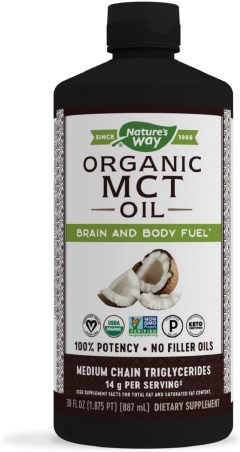
This formula is ideal for a high-octane energy boost derived from coconut oil.
Reputable brand and highly rated formula. 30-ounce bottle contains 14 mg per serving. Compatible with paleo, keto and vegan diets. Lacks odor and flavor — easy to combine with other beverages.
Somewhat pricey. May go quickly if taking 3 servings daily.

We recommend these products based on an intensive research process that's designed to cut through the noise and find the top products in this space. Guided by experts, we spend hours looking into the factors that matter, to bring you these selections.

MCT oil is an odorless and tasteless liquid supplement derived from coconut or palm oil that has powerful brain-boosting and energy-enhancing benefits. This medium-chain triglyceride (MCT) is a healthy fat that can actually help you lose weight — a claim backed by science.
Coconut oil is all the rage in the health and wellness world, and interestingly, MCT oil is derived from coconuts. In fact, through MCT oil, it is thought that you can get a much greater concentration of useful MCTs like caprylic acid and capric acid than you would get from ingesting coconut oil alone. Keep reading to find out more about this game-changing supplement.

MCTs are medium-chain fatty acids with health benefits that set them apart from other fatty acids. The difference lies in the way they’re metabolized by the body. Here are some of the benefits.




















Coconut oil is sometimes marketed as being a great source of MCTs when, in fact, it is highest in lauric acid — the least-beneficial MCT. Coconut oil contains four strains of MCTs: caproic acid (C6), caprylic acid (C8), capric acid (C10), and lauric acid (C12). Three of these are quickly absorbed by the body, bypassing the gut and converting to energy thanks to the liver. Those three are C6, C8, and C10.
Lauric acid, on the other hand, is slow to convert to energy because it goes through your stomach. Though lauric acid is good for you, it doesn’t offer that energy boost that may people seek, nor does it offer the degree of antimicrobial benefits that other MCTs do.
Unfortunately, many MCT oils are cut with lauric acid, thereby weakening the energy benefits and antimicrobial properties. The most effective MCT oil contains a high amount of caprylic acid and capric acid.

Size: MCT oils are liquid at room temperature and generally come in opaque plastic bottles. The average bottle size is 32 ounces or 16 ounces. A serving size is one to two tablespoons per day. Some manufacturers offer serving-size packets of MCT oil for convenience or travel.
Ease of pouring: MCT oils are thin and tend to exit the bottle quickly. For some people, having a squirt bottle cap helps control the flow. Others find this type of cap messy or leaky. Many MCT oils don’t come with a pour spout at all, forcing consumers to find creative solutions, like reusing olive oil bottles.
Palm vs. coconut: The coconut tree and palm tree are both in the palm family, and both provide a great source of MCT oil. Some MCT oils are a mixture of both palm and coconut. For eco-minded consumers, opt for MCT oils derived only from coconuts — unless the palm oil is sustainably sourced.
A 32-ounce entry-level MCT oil can be found in the $19 to $24 price range. For a higher-quality MCT oil made from non-GMO or organic coconuts, expect to pay $24 to $27 for the same bottle size.
For the ultimate investment in your health, expect to spend $28 to $48 on a 32-ounce bottle of MCT oil. These products tend to be the purest form of MCT oil. You may also be paying extra for sustainably grown coconuts or palm.


Q. How does MCT oil benefit my gut?
A. MCT oil is easier to digest than other fats because, unlike long-chain triglycerides, they are easily absorbed by the body, thereby giving your gastrointestinal tract a break. They also have antiviral and antibacterial properties (some MCTs more than others) and may help balance the gut microbiome by combating “bad” bacteria. Capric acid, in particular, may have antifungal properties to combat candida.
Q. How does MCT oil help my brain?
A. MCTs easily break down in the body, so they can be used as immediately as energy. If you’re on a keto diet, these healthy fats turn into ketones in the liver. Ketones can pass the blood-brain barrier, making them a perfect energy source for your brain. People who regularly consume MCT oil report increased mental sharpness and stamina. MCT oils containing mainly caprylic and capric acid are particularly brain-friendly and may even help with memory loss.
Get emails you’ll love.
Learn about the products you’re wondering if you should buy and get advice on using your latest purchases.
